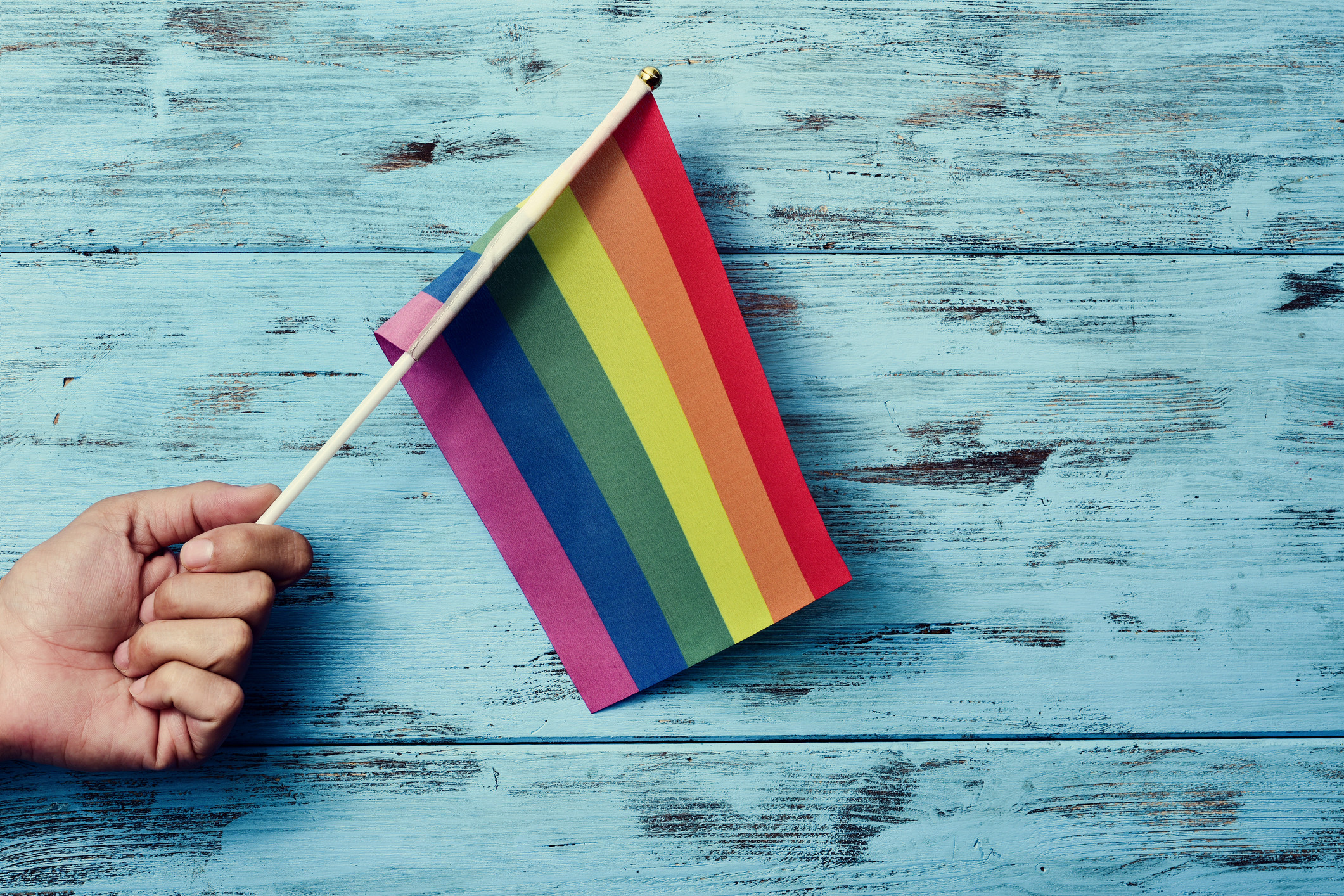Botswana has decriminalized gay sex. But, it’s still illegal in 70 countries
Flagging up discrimination
Image: REUTERS/Andrew Kelly
Stay up to date:
Values
Human rights activists around the world have welcomed a landmark decision by Botswana’s High Court to decriminalize homosexuality. But progress towards equal rights for LGBTI people globally is uneven to say the least.
Overturning Botswana’s colonial-era ban on homosexuality, the High Court declared the law discriminatory, unconstitutional and against the public interest. "A democratic society is one that embraces tolerance, diversity and open-mindedness," said Justice Michael Leburu.
The 2019 annual survey of state-sponsored homophobia by the International Lesbian, Gay, Bisexual, Trans and Intersex Association (ILGA) lists 70 countries that criminalize homosexuality.
Steps forward and back
The defeat of the Islamic State group in Iraq and Syria has removed the imminent threat of capital punishment for LGBTI people living in those areas.
In last 18 months, Angola, India and Trinidad and Tobago scrapped laws banning consensual same-sex acts. This year Taiwan became the first Asian economy to legalize same-sex marriage.
What is the Forum doing to boost inclusion for LGBTI people?
But in 2017, Chad imposed new laws criminalizing homosexuaity and in April this year Brunei increased the penalty for same-sex acts from 10 years’ jail to death. After a global outcry, the Sultan of Brunei announced a moratorium on the use of the death penalty.
Homosexual acts are still punishable by death in six countries: Iran, Saudi Arabia, Sudan, Yemen and in some states of Nigeria and parts of Somalia under the control of the Al Shabaab Islamist militant group, according to ILGA.
ILGA says that even in countries that have no explicit law prohibiting same-sex acts, public decency and prostitution laws are frequently used to prosecute and imprison LGBTI people. And discrimination remains widespread, it says, particularly in employment.
Accept our marketing cookies to access this content.
These cookies are currently disabled in your browser.
Businesses promoting equality
A business-led Partnership for Global LGBTI Equality was launched at this year’s Annual Meeting of the World Economic Forum in Davos, by Accenture, Deutsche Bank, EY, Mastercard, Microsoft, Omnicom and Salesforce.
The Partnership said discrimination against LGBTI people not only violates human rights but also harms the global economy. It cited a UN report which estimated the global cost of LGBTI discrimination at over $100 billion per year.
“Competitiveness can only occur for countries that provide opportunities for all and that absolutely has to include LGBTI diversity,” says Saadia Zahidi, head of the Centre for the New Economy and Society at the World Economic Forum.
“There is a clear economic case. It is very clear that countries that do this well, tend to be the ones that have faster growth. There is also a moral case, a values case.”
Don't miss any update on this topic
Create a free account and access your personalized content collection with our latest publications and analyses.
License and Republishing
World Economic Forum articles may be republished in accordance with the Creative Commons Attribution-NonCommercial-NoDerivatives 4.0 International Public License, and in accordance with our Terms of Use.
The views expressed in this article are those of the author alone and not the World Economic Forum.
Related topics:
Forum Stories newsletter
Bringing you weekly curated insights and analysis on the global issues that matter.
More on Civil SocietySee all
Annette Mosman
June 19, 2025
Laura Henderson
June 4, 2025
Daniel Dobrygowski and Giannis Moschos
May 21, 2025
Gustavo Maia
April 22, 2025
Michael Boampong and Kajsa Hallberg Adu
April 16, 2025
Toshihiro (Toshi) Nakamura and Ewa Wojkowska
April 11, 2025






